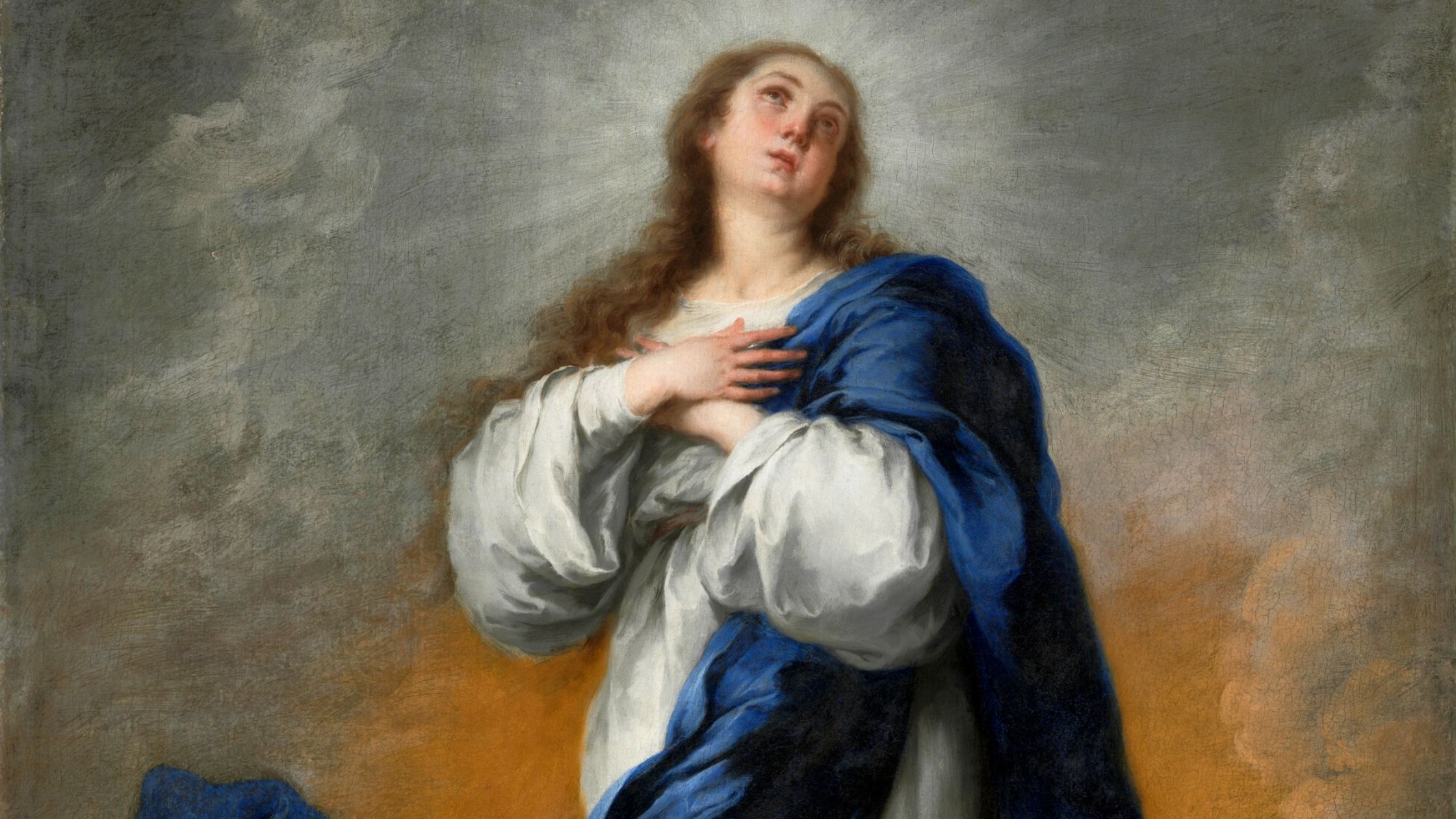Amidst the vast landscape of Catholic beliefs, "The Immaculate Conception" stands as a profound doctrine that holds immense significance for the faithful. It proclaims the extraordinary birth of the Virgin Mary, free from the stain of original sin, an event that sets her apart as the pure vessel chosen to bear the Son of God.
Editor's Note: "The Immaculate Conception: A Catholic Doctrine And Its Significance" published on 7th March 2023. This topic is important to raise awareness on knowledge of Christian Catholic Doctrine, especially the concepts of the Immaculate Conception Virgin Mary which will impart light to the reader's minds.
Through meticulous analysis and extensive research, we present this comprehensive guide to illuminate the significance of the Immaculate Conception, exploring its theological underpinnings and the profound impact it has had on Catholic spirituality and tradition.
Key Differences:
| The Immaculate Conception | Original Sin |
|---|---|
| Virgin Mary was conceived without original sin. | All humans are born with original sin, inherited from Adam and Eve. |
| Mary was chosen by God to be the mother of Jesus. | Original sin separates humans from God. |
| The Immaculate Conception is a celebrated Catholic doctrine. | The doctrine of original sin is a core belief in Christianity. |
Main Article Topics:
- Theological Basis of the Immaculate Conception
- Biblical and Patristic Support for the Doctrine
- Mariological Implications of the Immaculate Conception
- Historical Development of the Doctrine
- Devotional Practices Associated with the Immaculate Conception
- The Immaculate Conception in Art and Literature
FAQ
The Immaculate Conception, a Catholic doctrine, holds that the Virgin Mary was conceived free from original sin. It is a significant belief, as it highlights Mary's unique role in salvation history and her special relationship with God.

The Immaculate Conception of the Blessed Virgin Mary – Feast of the Day - Source www.ctsbooks.org
Question 1: What does the Immaculate Conception mean?
The Immaculate Conception refers to the belief that Mary, the mother of Jesus, was conceived without the stain of original sin. Original sin is the sinful nature inherited by all humans due to the fall of Adam and Eve.
Question 2: Why is the Immaculate Conception important?
The Immaculate Conception underscores Mary's unique role in God's plan. It shows that she was chosen from the beginning to be the mother of Jesus, the Savior. Her freedom from sin allowed her to fully cooperate with God's grace and become the perfect vessel for His Son.
Question 3: How do Catholics believe Mary was conceived immaculately?
Catholics believe that God intervened in a unique way to preserve Mary from original sin at her conception. This intervention is seen as a foreshadowing of the redemption brought by Jesus Christ.
Question 4: When did the Church declare the Immaculate Conception a dogma?
The doctrine of the Immaculate Conception was formally defined as a dogma of faith by Pope Pius IX in 1854.
Question 5: Is the Immaculate Conception biblical?
While the Immaculate Conception is not explicitly mentioned in the Bible, it is supported by the concept of Mary's fullness of grace and her special role in God's plan.
Question 6: How does the Immaculate Conception relate to Mary's role as the mother of God?
The Immaculate Conception emphasizes Mary's unique role as the mother of God (Theotokos). Her freedom from sin allowed her to fully cooperate with God's plan and become the perfect vessel for the Incarnation of Jesus Christ.
The Immaculate Conception is a central tenet of Catholic belief and a reminder of Mary's special role in salvation history. It highlights her unique relationship with God and her importance as the mother of Jesus.
Learn more about the Immaculate Conception in the next article section.
Tips: Understanding the Immaculate Conception
To fully grasp the significance of the Immaculate Conception, these tips provide a deeper understanding of its history, theological implications, and relevance in the Catholic tradition:

Chrism Mass at The Cathedral of the Immaculate Conception: April 4 at 7 - Source cdom.org
Tip 1: Understand the Historical Context
The Immaculate Conception was not an original belief but developed over centuries. Studying the historical evolution, particularly in the writings of early Church Fathers, helps contextualize its formulation.
Tip 2: Examine the Biblical Basis
While not explicitly mentioned, certain biblical passages, such as the promise to crush the serpent's head (Genesis 3:15) and Mary's Magnificat (Luke 1:46-55), hint at the Immaculate Conception.
Tip 3: Explore the Theological Arguments
Theological arguments supporting the Immaculate Conception include the dignity of Mary as the Mother of God, the contrast between Mary and Eve, and the idea of Mary as a sanctuary free from sin.
Tip 4: Consider the Significance for Mary
The Immaculate Conception highlights Mary's unique role as an instrument of redemption and cooperation with God's plan. It underscores her freedom from original sin and her perfection.
Tip 5: Understand the Relevance for Catholics
The Immaculate Conception teaches Catholics about the power of God's grace, the dignity of humanity, and the hope for salvation through Mary's intercession.
These tips offer a comprehensive approach to understanding the Immaculate Conception, its historical development, theological significance, and relevance in the Catholic faith.
The Immaculate Conception: A Catholic Doctrine And Its Significance
The Immaculate Conception holds immense significance in the Catholic faith, emphasizing the purity and holiness of the Virgin Mary and its profound implications for Christian belief. Let's delve into six key aspects of this doctrine:
- Conception: Mary's conception without the inheritance of original sin.
- Immaculate: Mary's purity and freedom from all stain of sin.
- Doctrine: Church teaching that upholds Mary's exceptional status.
- Dogma: The Immaculate Conception as an official and definitive belief.
- Significance: Mary's role as a model of grace and intercessor for believers.
- Celebration: The Feast of the Immaculate Conception commemorates this doctrine.
These aspects are interconnected and contribute to a comprehensive understanding of the Immaculate Conception. Mary's immaculate nature signifies her special role in God's plan as the mother of Jesus Christ, exemplifying the transformative power of divine grace. The doctrine also highlights the importance of sinlessness as a precondition for holiness, inspiring believers to strive for purity and spiritual growth.

Pin on Crosses, Holy Cards & Rosaries - Source www.pinterest.com
The Immaculate Conception: A Catholic Doctrine And Its Significance
The Immaculate Conception is a Catholic doctrine which states that the Virgin Mary was conceived without original sin. This doctrine is based on the belief that Mary was chosen by God to be the mother of Jesus Christ, and that she was therefore preserved from all sin from the moment of her conception. The Immaculate Conception is a central part of Catholic belief, and it is celebrated on December 8th each year.

360° view of The Immaculate Conception Catholic Church - Alamy - Source www.alamy.com
The Immaculate Conception is a controversial doctrine, and it has been rejected by some Christian denominations. However, it is an important part of Catholic belief, and it has been defended by many theologians and scholars. The doctrine of the Immaculate Conception is a reminder of the special role that Mary plays in the Catholic Church, and it is a source of great comfort and inspiration to many Catholics.
The Immaculate Conception has had a significant impact on Catholic culture and art. Mary is often depicted as a pure and sinless woman, and she is often venerated as a model of Christian virtue. The Immaculate Conception has also been a source of inspiration for many works of art, including paintings, sculptures, and music.
Conclusion
The Immaculate Conception is a central doctrine of the Catholic Church, and it is a source of great comfort and inspiration to many Catholics. The doctrine is a reminder of the special role that Mary plays in the Catholic Church, and it is a testament to the power of God's grace.
The Immaculate Conception is a reminder that we are all called to be holy, and that we can all be saved from sin through the grace of God. The doctrine is a source of hope and inspiration for all Christians, and it is a reminder that we are all capable of great things when we put our trust in God.